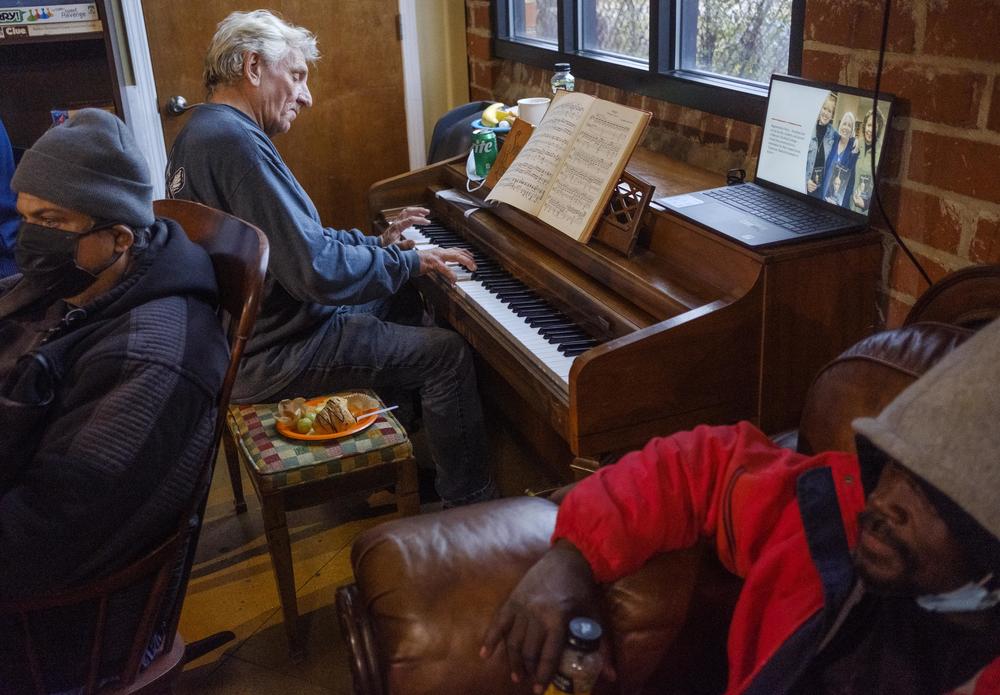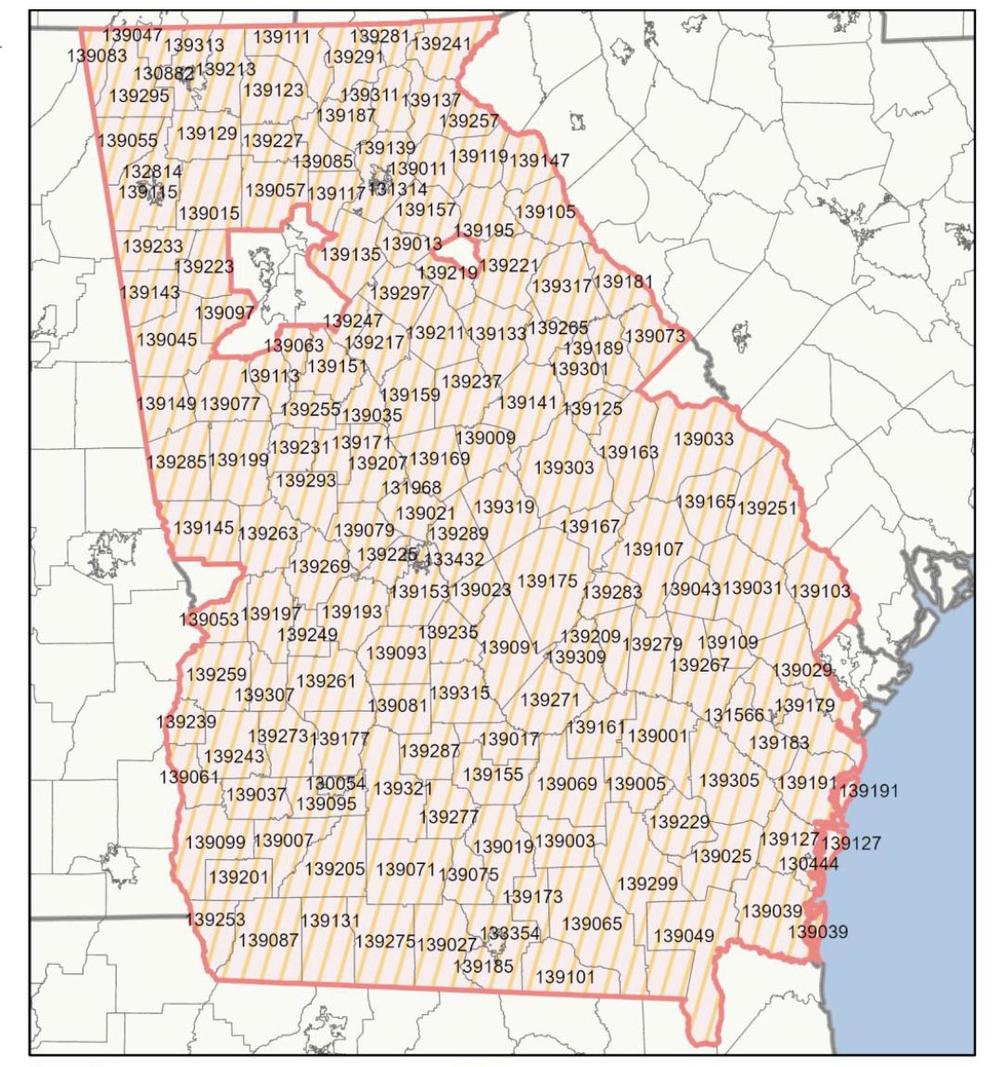
Caption
Randy Bedingfield plays the piano during a November reception at the Daybreak Day Center, which offers an array of services to the unhoused in Macon. Daybreak is privately funded but a Georgia Senate bill would audit public funds spent on such services.
Credit: Grant Blankenship/GPB


